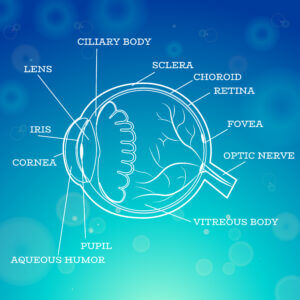
A new way to treat eye injuries – Softening the tissues around stem cells

Limbal epithelial stem cells

The anatomy of the human eye
The cornea, the outermost layer of the eye, plays a very important role in our vision. As with our skin, several layers of cells (epithelium) cover the cornea acting as a barrier to protect our eyes. So, keeping the epithelium healthy is key to maintaining good vision.
Limbal epithelial stem cells (LESCs), a population of stem cells in the periphery, are responsible for maintaining the cornea. When the cornea is damaged, these stem cells divide and migrate towards the damaged site to fix the damage.
But, when an injury affects the stem cells population, it also affects their ability to heal.
Looking at the stem cell niche

Researchers involved in this study hypothesized that they might modify the properties of LESCs and their ability to heal damaged corneas by changing the environment around them.
First, researchers used a microscopy-based imaging technique to look at the physical properties of the stem cells. They noted that the area where the stem cells are (the stem cell niche) appeared to be much softer than the rest of the tissue.
And, quite amazingly, changing the stiffness of their surroundings affected the ‘stemness’ of the LESCs. When their surrounding tissue became stiffer, these stem cells lost their ability to grow, divide and heal wounds.
So the question was, could they promote healing by making the surrounding softer?
A proof of principle experiment.
Onwards and upwards
This finding has created a lot of excitement because the researchers are pretty confident the same technique can be extended to other types of corneal injuries that lead to blindness. This means a relatively inexpensive method can be used to help millions of people who are suffering from blindness.
Studies like these stress the importance of preserving stem cells, so scientists can study them. Because the more we learn about stem cells, the closer we get to uncover their true potential, and to tackling conditions that affect many people around the world.
Reference:
Gouveia, RM, Lepert, G, Gupta, S. et al. (2019) Assessment of corneal substrate biomechanics and its effect on epithelial stem cell maintenance and differentiation. Nature communications. 10:1496. doi: https://doi.org/10.1038/s41467-019-09331-6.
Related Posts

Novel Cord Blood Stem Cell Treatment Leads to HIV Remission


Stem Cell Transplantation Shows Potential in Stroke Recovery









